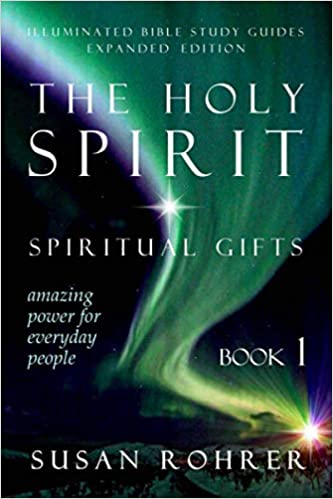1 Corinthians 12:1-11 focuses on spiritual gifts in the church. What are these spiritual gifts and do they still exist today?
Spiritual gifts are divine enablements for ministry that the Holy Spirit gives in some measure to all believers. They literally mean spiritual qualities or characteristics that are under the control of the Spirit. And these gifts are used for the building of the church for the glory of Christ (Romans 12:4-8).
Do Not Be Led Astray
Notice how the apostle Paul warned the church about being carried away by some idols (1 Corinthians 12:2-3). Incredibly, some church members were mimicking certain dramatic and bizarre practices in their old religion called ecstasy.
This practice is said to be the highest expression of religious experience. It involved supposed supernatural interaction with a deity, induced through frenzied hypnotic chants and ceremonies. The practice of ecstasy frequently included drunkenness and sexual orgies, to which the devotees willfully yielded themselves to sin.

The Spirit Will Not Curse Jesus
To call somebody accursed is the most severe kind of condemnation. Some members of the Corinthian church were fleshly and given over to ecstasies that were controlled by demons.
In that condition, they claimed to be prophesying or teaching in the Spirit while demonically blaspheming the name of the Lord. They were condemning the very same Jesus whom they were supposed to be worshiping. These Corinthian believers had been judging the use of gifts based on experience and not content.
We know that Satan will always assault the person of Christ. Thus, the one cursing Christ could be a pagan claiming to be a Christian. All along, he was holding to a philosophy that all matter was evil, including the human Jesus.
Truth be told – Jesus is Lord. Anyone who affirms the lordship of Jesus has the truth from the Holy Spirit. For the Spirit will never call Jesus accursed! What a person says and believes about Jesus Christ is the test of whether he speaks from the Holy Spirit.
This is why 1 John 4:1 says we are to test every spirit whether they are of God. He who has the Holy Spirit always leads people to Christ’s lordship.
The Different Spiritual Gifts
Contrary to what some people think, these diversities of giftedness are not natural talents, skills, or abilities. These are sovereignly and supernaturally bestowed by the Holy Spirit on all believers. The Spirit gives these gifts to enable believers to spiritually edify each other effectively and thus honor the Lord.
There are two general types of gifts: speaking and serving. Included in the gift of speaking or verbal are prophecy, knowledge, wisdom, teaching, and exhortation. The gift of serving or non-verbal includes leadership, help, giving, mercy, faith, and discernment. All these gifts are permanent and will operate throughout the church age.
Some believers may be gifted categorically similar to others but are personally unique as the Spirit suits each gift to the individual.
Wisdom
In the New Testament, “wisdom” is most often used for the ability to understand God’s Word and His will. This also enables the believer to skillfully apply that understanding to life.
I sometimes read discussions between Christians who have minor theological disagreements. And I find it rather amusing that both of them accuse each other of not having the Holy Spirit. This kind of argument is unhealthy as it often creates division among the follower of Christ.

Word of Knowledge
In the first century, the gift of knowledge has been revelatory. But today, it refers to the ability to understand and speak God’s truth, with insight into the mysteries of His Word. It is important to emphasize that these cannot be known apart from God’s revelation (Romans 16:25; Ephesians 3:3; Colossians 1:26; 2:2; 4:3).
How is knowledge different from wisdom? Knowledge majors on grasping the meaning of the truth; wisdom emphasizes the practical conviction and conduct that applies to it.
It’s not enough to have the gift of wisdom. You may understand God’s Word but if you do not know how to apply it, then it does not matter much.
Faith
This gift is distinct from saving faith or persevering faith, which all believers possess. The gift of faith (1 Corinthians 12:9a) is exercised in persistent prayer and endurance in intercession. It is coupled with a strong trust in God amid difficult circumstances.
Why do you think some believers start losing hope that God hears their prayers? It’s because they stopped believing that God hears them. Having the gift of faith spells all the difference. No matter how bad things may look, our faith enables us to persevere in prayer.
Healing
The gift of healing is one of the subjects of disagreement among Christians. Some claim this is a temporary sign gift that was limited to the apostles. While others say it continues to manifest today and will cease when Christ returns.
The fact remains that God hears and answers the prayers of the righteous (James 5:13-16).
Miracles
Again, some theologians claim this is a temporary sign gift to authenticate Christ and the apostolic preachers of the gospel. For instance, Acts 2:22 affirms that Jesus did miracles to “attest” that God was working through Him so that people would believe Him.
Whether the gift of miracles has ceased is a matter of dispute. One thing we need to know and be assured of is that God can still do miracles today if He wills to. God is not limited by what we think and believe. The Lord our God is all-powerful; there is nothing He can’t do for nothing is too difficult for Him (Jeremiah 32:27).
Prophecy
The meaning of the word is simply that of “speaking forth,” or “proclaiming publicly.” This connotes that it was added sometime in the Middle Ages.
Since the completion of Scripture, prophecy has not been a means of new revelation. Rather, it is limited to proclaiming what has already been revealed in the written Word. Even the biblical prophets were preachers, proclaimers of God’s truth by revelation and reiteration.
The best definition of this gift is given in 1 Corinthians 14:3 while its importance is in 1 Corinthians 14:1, 39. Its supremacy over other gifts, especially tongues is the theme of 1 Corinthians chapter 14.

Distinguishing of Spirits
Satan is the great deceiver (John 8:44) and his demons counterfeited God’s message and work. Christians with the gift of discernment have the God-given ability to recognize lying spirits and to identify deceptive and erroneous doctrines.
In Acts 16:16-18, Paul illustrated the use of this gift, as Peter exercised it in Acts 5:3. When the believers in Corinth were not exercising it, grave distortion of the truth occurred (1 Corinthians 12:3; 14:29).
Although its operation has changed since apostolic times, because of the completion of Scripture, it is still essential to have people with this gift. They are the guardians, the watchmen who protect the church from demonic lies and false doctrines,
As it requires diligent study of the Word to exercise the gifts of knowledge, wisdom, preaching, and teaching, so it does with discernment.
Tongues and Interpretation
The gift of tongues was identified in Acts 2:5-12 as languages that validated the gospel as divine. These languages were given by the Spirit as a sign of judgment to unbelieving Israel.
However, there’s another kind of speaking in tongues discussed by Paul in chapter 14 of 1 Corinthians. Although he said it would be more beneficial to prophesy than to speak in tongues, Paul did not deny this gift is of the Spirit.
Anyone who speaks in a tongue does not speak to men but God (1 Corinthians 14:2). Paul recognized that, normally, when someone spoke in tongues, no one else could understand him. The reason is simple: with the gift of tongues, the intention is to speak to God and not man. Therefore, it is fine if no one understands him because God understands him.
When no one understands the “tongue’s” speaker, it does not mean it isn’t a language, or that they are merely speaking “gibberish.” It means they speak in the spirit and that they speak mysteries.
But Paul emphasized that it would be better if the speaker could interpret what he said so that the church may be edified (1 Corinthians 14:5, 13). The goal must be a mutual benefit at church meetings. If there must be tongues, they must be interpreted, so there can be edification.
The Same God at Work
God gives every believer unique ministry arenas in which to fulfill their giftedness. He also provides varieties of power to energize and accomplish them.
No matter what the gift, ministry, or effect, all spiritual gifts are from the Holy Spirit. They make Him known, understood, and evident in the church, and the world, by spiritually profiting all who receive their ministry.
Final Words
While stressing the diversity of gifts, Paul also stressed the singular source – the Holy Spirit (1 Corinthians 12:11). He distributes them not according to our will but as the Spirit of God wills it.
Why would He choose to give a particular gift at a particular moment? The larger reasons may not be apparent, but the goal of the Holy Spirit’s work is always to glorify Jesus and to build His nature and character in us.
The Holy Spirit distributes and we receive.
Disclaimer: As an Amazon Associate, I may earn a commission when you use any links on this page to make a purchase, but at no additional cost to you.
Recommended Resource: The Holy Spirit – Spiritual Gifts: Amazing Power for Everyday People by Susan Rohrer
 Do You Want to Experience God’s Power in Your Everyday Life?
Do You Want to Experience God’s Power in Your Everyday Life?
We sit in our pews and hear about the awesome power of God the Father. Also, we marvel at the miracles of Jesus. Then off we go, never expecting those supernatural spiritual gifts of the Holy Spirit to flow through us in the here and now.
That’s exactly what this author did, until one day she was confronted with a stunning possibility: that miracles of biblical proportions can and do still happen, even in the lives of the humblest among us. Even you.
The challenge? It meant getting to know the Holy Spirit, that enigmatic Third Person of the Trinity she’d heard so little about in traditional teaching. It meant braving controversy about spiritual gifts, searching the Scriptures, and venturing into new waters in faith.
This scripturally referenced how-to book with workbook-style applications is ideal for individual or group Bible Study, geared at building a highly accessible, scriptural foundation for the Person and supernatural spiritual gifts of the Holy Spirit.


Thank you for this presentation.
It’s beautiful to see how all of these gifts are ingredients to the great cause of the Good News. I believe you have a gift for writing, knowledge, teaching, and evangelism. God is surely using you as a blessing.
What do you notice within me from your observations?
Hi Maia,
The Holy Spirit gave each of us gifts as He sees appropriate.
I believe He has given you not only the gift of wisdom, knowledge, and faith. You also received the gift of discerning spirits.
Use your gifts to bless others, edify the church, and proclaim the Gospel.
God bless …
I believe that God has used Covid to really strengthen my spiritual gifts.
I have become more insightful into the scope of the Bible and morality, accustomed to seeking spiritual knowledge through the Scriptures and divine revelations, writing and singing to Him and the world through music and literature, and deciphering the lies of Satan: Both through a Biblical lens and through current events.
Thank you for helping collaborate with me on these presentations. I will send you a slideshow presentation shortly, probably at the end of this week. It’s a guide for young teens on resisting temptations from Satan.
Looking forward to it, thanks, Maia.